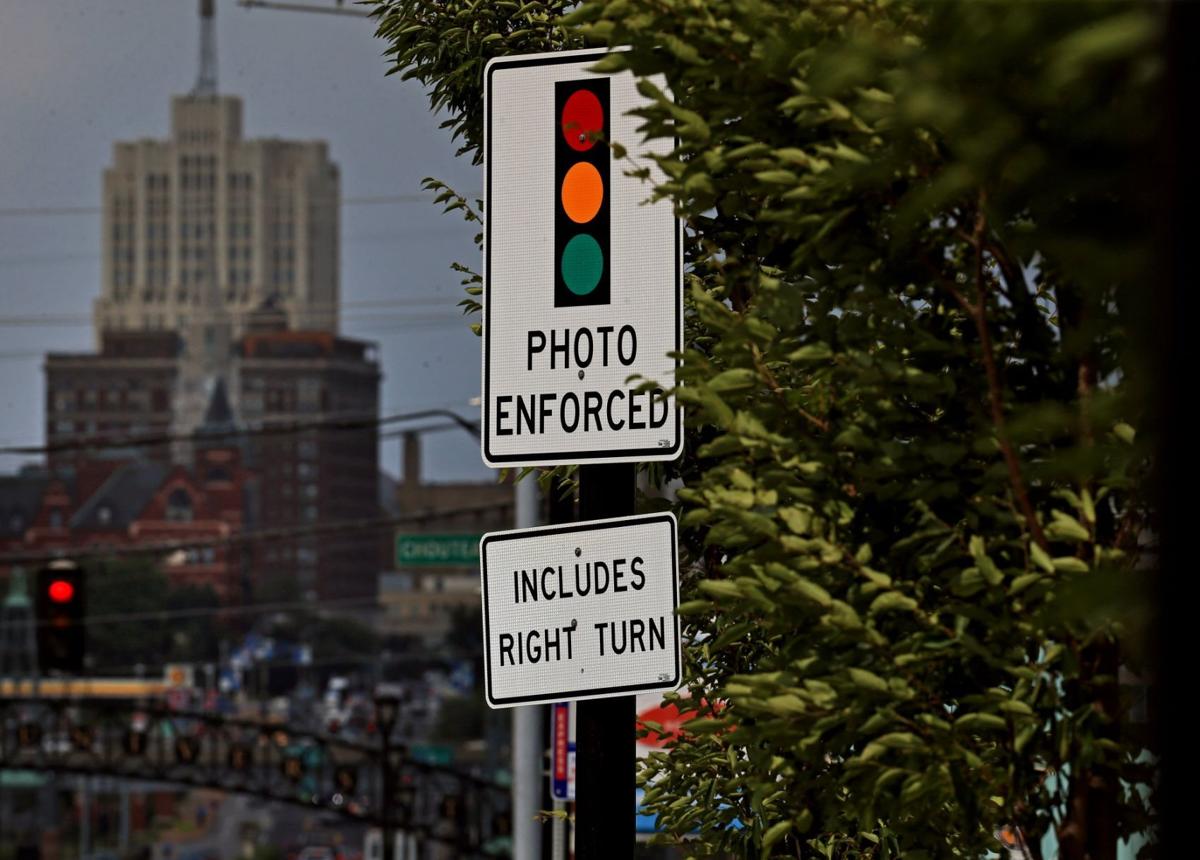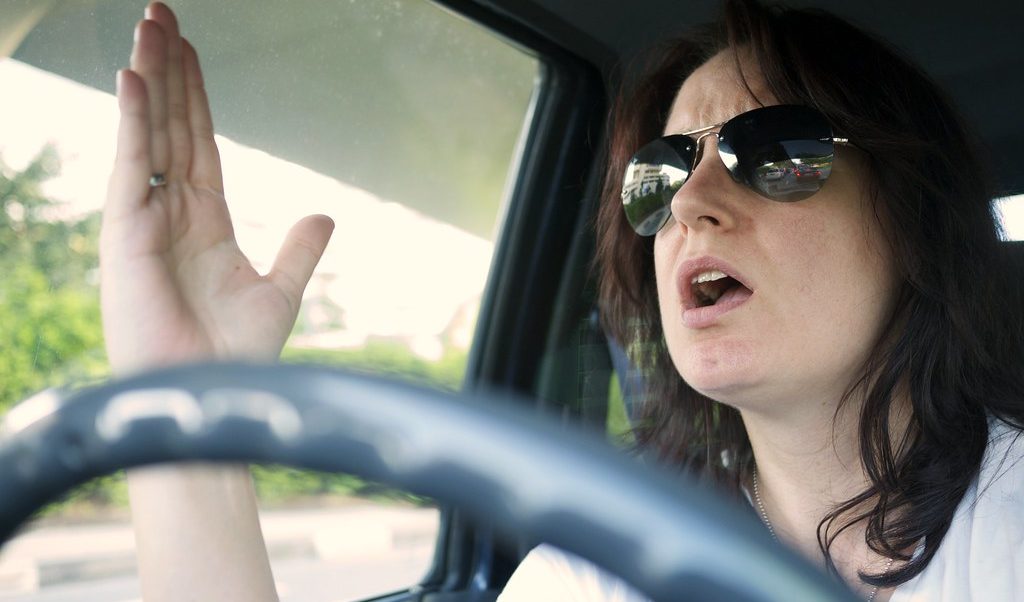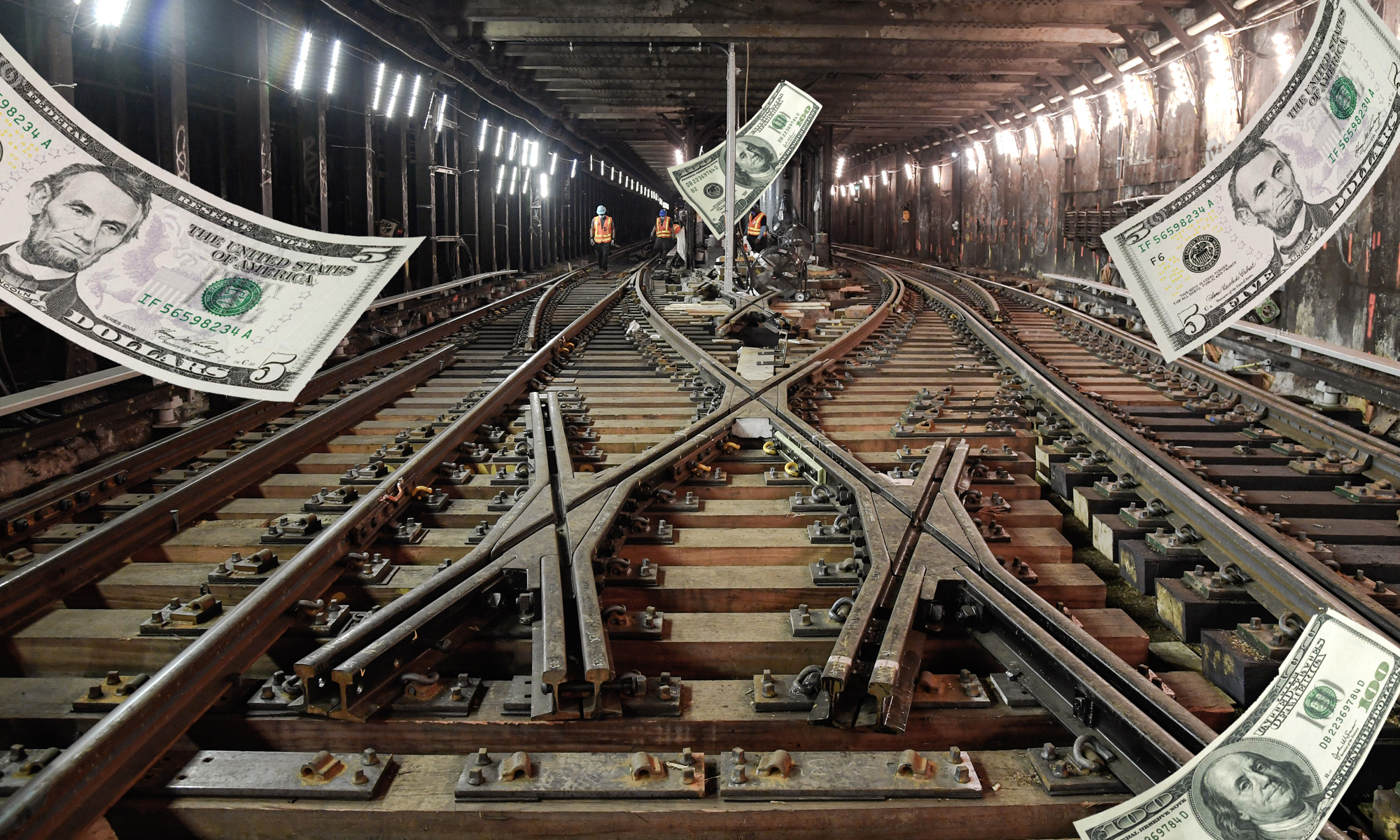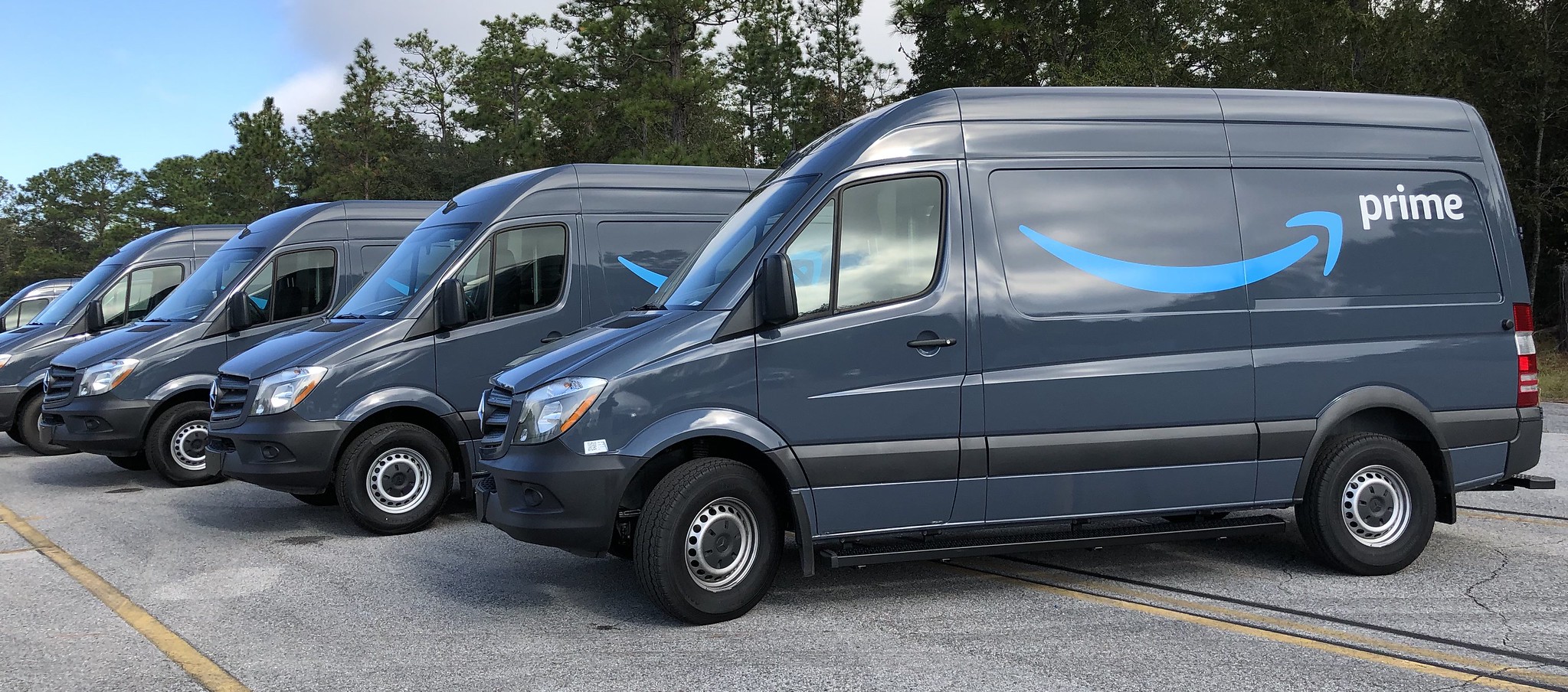Do Traffic Fines Make Streets Safer — And At What Cost?
6:30 PM EDT on April 29, 2021
In the wake of the murder of George Floyd by Minneapolis police officer Derek Chauvin, some safe-streets advocates have called for the removal of police officers from traffic enforcement and a shift toward racially neutral, automated enforcement. But does technology such as speed cameras always make our streets safer? Or do the traffic fines they spit out simply send poor drivers — a group that includes many people of color — into a spiral of poverty, lost mobility, and even incarceration, without necessarily saving the lives of many vulnerable road users?
We sat down with Priya Sarathy Jones, national policy and campaigns director for the Fines and Fees Justice Center, to explore the intersection of the movement to eliminate unjust fines and fees and the movement to end traffic violence. This interview has been edited for clarity and length.

Streetsblog: What do we know about how much fines deter dangerous driving behaviors? I’ve seen compelling research that suggests that red-light and speed cameras reduce traffic fatalities, but I’ve seen other studies that suggest that improvements may come from other factors, such as advancements in vehicle-safety technology. A few smaller studies even suggest cameras may not reduce crashes much at all. How can street safety advocates make sense of the conflicting information?
Priya Sarathy Jones: Well, there’s one thing we do know pretty definitively: that there’s little evidence that the amount of a traffic fine — and definitely not the amount of a traffic fee — has any impact on traffic safety. There’s a little bit of research that we’ve looked at that could indicate that there is potentially a use for a small fine, but there’s definitely no evidence that a $1,000 fine is more effective than, say, a $10 fine in deterring dangerous behavior.
You would think, intuitively, that when you install a traffic camera, you would see a decrease in traffic crashes, injuries, and fatalities. You'd think you would see the number of those tickets reducing over a certain period. But I cannot conclusively say that happens across the country with the vast majority of cameras. You may see it at some particular cameras, but I would be curious to look at what else happened besides that camera being installed in that particular place.
Just to give a personal example, I live in D.C., and we love a traffic camera in D.C. A while back, my husband and I actually got cited on a commonly traveled route in our neighborhood, where [a new speed camera] had just been placed right where a higher speed limit zone turns into a lower speed-limit zone, and that change happened very quickly, with almost no signage, and nothing in the roadway design that might intuitively suggest that drivers were supposed to slow down. My husband and I got four tickets, just from that one camera. We got them almost all at once, so we didn’t even have an opportunity to learn from the first mistake we made — and even when we did get the ticket, we had to physically go to the traffic camera to find out what we did wrong and where, so we could change our behavior at that intersection. We didn’t want to break the speeding rules. We weren’t trying to break the speeding rules. But a lot of speed cameras seem to go up in places where the design of the road itself is really the problem.
SB: Tell me about the effects of our traffic-fining system, apart from the question of whether or not fines themselves make our streets safer.
PSJ: Automated enforcement does get at one important angle of harm reduction, which is eliminating all of the dangerous things that can happen during an armed, human traffic stop. But the camera itself, you have to remember, is a high revenue-generating operation for a city. When a camera is installed under the banner of traffic safety — without, I should add, any real scrutiny of whether that camera is achieving our traffic-safety goals — the fines it generates can cause harm, especially when a driver can't afford to pay. In 13 states, traffic citations are criminal misdemeanors. Speeding is a criminal citation. You can go to jail for that in a way you can’t go to jail for, say, not paying your rent — so, sometimes you pay the fines and fees, even if it’s it the cost of food and shelter.
Then there’s the other side of the coin, too, which is how the fining system incentivizes municipalities to grow the list of safety infractions — especially during times when revenues are low, such as after a recession, or when you’re easing lockdowns after a pandemic, because there’s so few ways that small, municipal governments can generate revenue. That list [of citable offenses] has grown exponentially, and they're not all about dangerous-driver behavior; there's also these egregiously expensive jaywalking tickets in Ferguson, or for, say, parking illegally on a private lot. So when me and my colleagues say “traffic citation,” we mean a lot of things; we mean moving and non-moving violations. There are a lot of places in America where their top-10 traffic citations are non-moving violations.
For the most part, when traffic-safety advocates talk about traffic citations, I find that they aren’t talking about whether your inspection sticker is in the right place or whether your license-plate tag was renewed at the right time. They’re talking about a carveout of infractions that are tied to public safety, and their concern is to stop traffic crashes, which is extremely important. But in the government’s case, the conversation is different; it’s, ‘of course we’d like to achieve that goal [of public safety]. But if we can also be making a lot of money in the process, why not?”
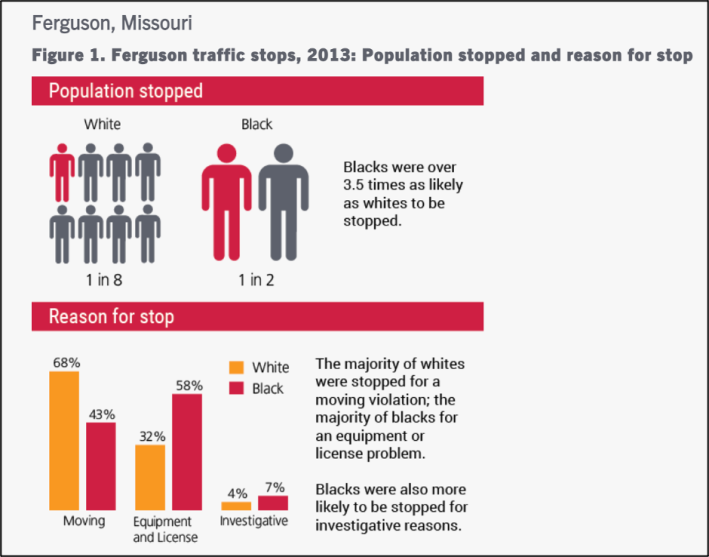
A lot of well-intentioned folks have the important goal to stop people from being hit or killed by drivers and reach Vision Zero. But I would also think that this same group of folks is also not trying to disproportionally attach fines and fees to predominantly Black and brown and low-income communities, sending those folks down a spiral of collateral consequences when they can’t pay.
In D.C., the [speed camera] ticket can be up to $150 for one infraction. If you’re going 41 miles per hour on a four-lane road that’s clearly designed for over 40 miles an hour but signed for 25 miles per hour, you’ll get a $150 ticket. If you can’t pay it, it turns into a $300 ticket. If the average American doesn’t have $500 for an emergency — and that stat is pre-COVID, by the way — I can’t imagine the average American will just be able to pay it with a debit card and move on. I don’t think that’s the intention of the street-safety community.
SB: Could we reform traffic fines and fees so that they actually make our streets safer, and make them less onerous on the poor? What if we used the revenue from every speed camera ticket to build road diets, or ADA-accessible sidewalks, or transit, or all of the above?
PSJ: Honestly, I find it difficult to have the conversation about where the money goes when I’m still questioning the validity and use of the system. Yes, of course, we want to take away any incentive to turn traffic fines into an all-purpose, revenue-generating scheme. Yes, we want to put that money back into the communities where the harm was caused. But that alone doesn’t solve all the [harm that follows from] how we do traffic enforcement. I wish I could tell you, "here’s the formula. This is how you fix it." But I can’t.
What we’ve been doing to date hasn’t been achieving the goals of Streetsblog readers or achieving the goals of a lot of other people. In America, we love to lead with enforcement. We think we will enforce our way to a society where everyone will act and behave the way we would like them to. But the enforcement strategies that you think would work on you may not work on everybody — and they do not not have the same impact on everybody.
When I got those four speed-camera tickets, I paid them, and was annoyed, and then moved on. But I think about all the people who didn’t have the money to pay those fines like I did. In D.C., you can’t get your driver’s license or any professional license renewed in the city if you owe $100 or more, which is just one ticket. You may be cut off from economic opportunity over just one ticket.
What that tells me is we need to do something different, and we should be really innovative as we focus on what actually does achieve these important objectives. I know the towns in Europe that have had success with Vision Zero that didn’t lead with enforcement; what are the other differences there? What can we learn?
Priya Sarathy Jones will participate in a webinar for the Vision Zero Network entitled Addressing Unjust Financial Penalties in Traffic Safety on May 12. Find more information here.
Kea Wilson has more than a dozen years experience as a writer telling emotional, urgent and actionable stories that motivate average Americans to get involved in making their cities better places. She is also a novelist, cyclist, and affordable housing advocate. She previously worked at Strong Towns, and currently lives in St. Louis, MO. Kea can be reached at kea@streetsblog.org or on Twitter @streetsblogkea. Please reach out to her with tips and submissions.
Stay in touch
Sign up for our free newsletter
More from Streetsblog USA
You Wouldn’t Like Monday’s Headlines When They’re Angry
Which state has the worst road rage? Consumer Affairs magazine looked at a variety of factors to come up with an answer.
When it Comes to Federal Infrastructure Grants, Size Does Matter
Cities and municipalities with larger budgets and staff are more likely to win competitive federal infrastructure grants, the Urban Institute has found.
The E-Commerce Explosion is Making Roads More Dangerous
And can advanced technology stop the bloodshed?
Are Friday’s Headlines the New Normal?
Transit ridership hasn't come all the way back from the pandemic, and they're going to need more federal help, along with other changes, says Governing magazine.
Friday Video: How to Make Places Safe For Non-Drivers After Dark
A top Paris pedestrian planner, a leading GIS professional, and Streetsblog's own Kea Wilson weigh in on the roots of America's nighttime road safety crisis, and the strategies that can help end it.
